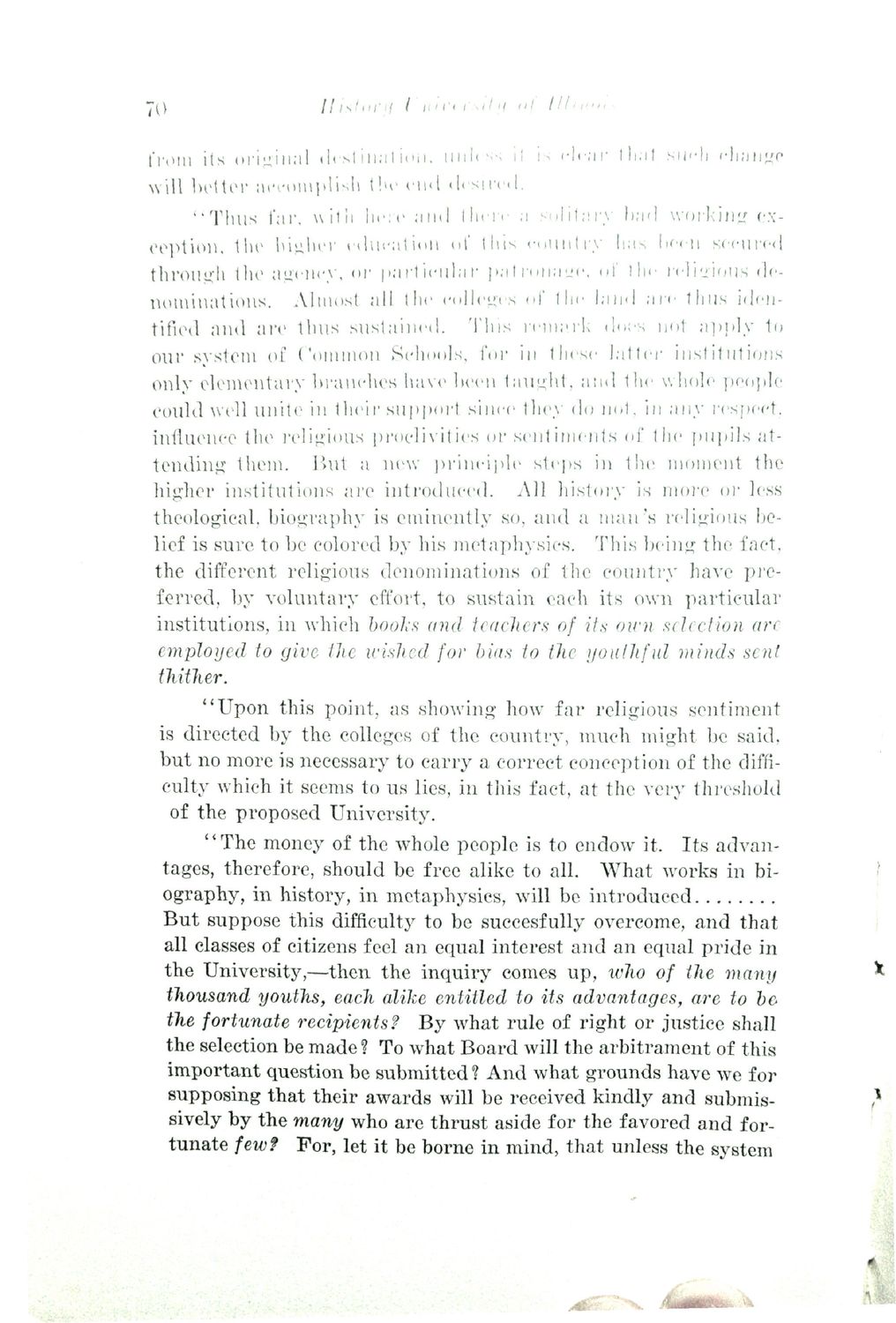| |
| |
Caption: Book - History of the University (Powell)
This is a reduced-resolution page image for fast online browsing.

EXTRACTED TEXT FROM PAGE:
70 History University of Illinois from its original destination, unless it is clear that such change will better accomplish the end desired. 1i Thus far, with here and there a solitary bad working exception, the higher education of this country has been secured through the agency, or particular patronage, of the religious denominations. Almost all the colleges of the land are thus identified and are thus sustained. This remark does not apply to our system of Common Schools, for in these latter institutions only elementary branches have been taught, and the whole people could well unite in their support since they do not, in any respect, influence the religious proclivities or sentiments of the pupils attending them. But a new principle steps in the moment the higher institutions are introduced. All history is more or less theological, biography is eminently so, and a man's religious belief is sure to be colored by his metaphysics. This being the fact, the different religious denominations of the country have preferred, by voluntary effort, to sustain each its own particular institutions, in which books and teachers of its own selection are employed to give the wished for bias to the youthful minds sent thither. "Upon this point, as showing how far religious sentiment is directed by the colleges of the country, much might be said, but no more is necessary to carry a correct conception of the difficulty which it seems to us lies, in this fact, at the very threshold of the proposed University. "The money of the whole people is to endow it. Its advantages, therefore, should be free alike to all. What works in biography, in history, in metaphysics, will be introduced But suppose this difficulty to be succesfully overcome, and that all classes of citizens feel an equal interest and an equal pride in the University,—then the inquiry comes up, who of the many thousand youths, each alike entitled to its advantages, are to be the fortunate recipients? By what rule of right or justice shall the selection be made? To what Board will the arbitrament of this important question be submitted ? And what grounds have we for supposing that their awards will be received kindly and submissively by the many who are thrust aside for the favored and fortunate few? For, let it be borne in mind, that unless the system
| |